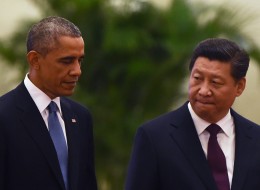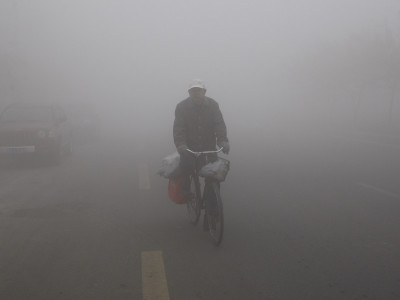China
China and the Paris Agreement
The Long Road from Copenhagen to Paris
Six years ago in Copenhagen, China was seen as the spoiler. A widely read article claimed that China had “wrecked” the Copenhagen deal. One of China’s lead negotiators suggested that American envoy Todd Stern was “ignorant,” lacking in “common sense” or “extremely irresponsible.” What a difference a few years can make. On Saturday in Paris, …
Continue reading “China and the Paris Agreement”
CONTINUE READINGOn China’s Remarkable Viral Air Pollution Video
Can 200 million viewers (and counting) be wrong?
Last Saturday evening, my research assistant (a wonderful JD student raised and educated in China) sent me a message: “This is a link to a documentary directed by Chai Jing (柴静). It has raised public concern about air pollution.” In perhaps the understatement of the year, she added: “Many Chinese people have been watching it.” …
Continue reading “On China’s Remarkable Viral Air Pollution Video”
CONTINUE READINGMore Thoughts on the US-China Climate Announcement
Ann Carlson and I talk with the New York Times on US politics, Chinese implementation, and the potential impact on India.
Ann Carlson and I talked with Edward Wong from the New York Times last week about the US-China Climate Announcement. We repost the Q&A here. From Edward Wong, NYT: The biggest commitments to come out of President Obama’s recent visit to China involved climate change policy. The leaders of the two nations stood beside each …
Continue reading “More Thoughts on the US-China Climate Announcement”
CONTINUE READINGA Ray of Hope [Breaking News]
President Obama and Chinese President Xi Jinping announced a major deal on climate change this morning. As summarized by the Washington Post, China, the world’s biggest emitter of greenhouse gases, pledged in the far-reaching agreement to cap its rapidly growing carbon emissions by 2030, or earlier if possible. It also set a daunting goal of …
Continue reading “A Ray of Hope [Breaking News]”
CONTINUE READINGChina’s Pollution Challenge
Can a new law save China’s environment?
Benjamin van Rooij and I published the following in the New York Times op-ed page today. In short, it is about the challenges the new Environmental Protection Law will face in practice and the critical reforms needed to overcome these challenges: China’s national legislature has adopted sweeping changes to the country’s Environmental Protection Law, revisions …
Continue reading “China’s Pollution Challenge”
CONTINUE READINGAir Pollution in China Shuts Down City of 11 Million
The airpocalypse is back. What should Chinese leaders do about it?
On Sunday, the start of the heating season in northern China brought the “airpocalypse” back with a vengeance (although some might say it never left). Harbin, the capital of Heilongjiang Province and home to 11 million people, registered fine particulate (PM2.5) pollution levels beyond 500 on the Chinese Air Quality Index, which is considered hazardous …
Continue reading “Air Pollution in China Shuts Down City of 11 Million”
CONTINUE READINGCan We Replace HFCs?
What was supposed to be an informal meeting between President Obama and Chinese President Xi Jinping has yielded something substantive: an agreement to include hydrofluorocarbons (HFCs) under the Montreal Protocol, and thus an agreement by both nations to reduce their use: As some environmental analysts had hoped, President Obama and President Xi Jinping of China found room to maneuver on global warming …
Continue reading “Can We Replace HFCs?”
CONTINUE READINGChina’s New Environmental Courts
Pollution in China has been much in the news recently, from premature deaths caused by air pollution to news of thousands of dead pigs found in a Shanghai river. Could law help solve China’s environmental problems? My recent post on China Dialogue takes a look at what China’s new environmental courts have been able to accomplish so far.
CONTINUE READINGClimate Adaptation and the Two Chinas (and the Two Brazils, and the Two Indias….)
The world used to be divided into developed countries and developing countries, but a third group has now taken the stage: emerging economies like China, India, and Brazil that are growing very rapidly but haven’t yet attained developed country status. But development in these countries is uneven. In China, for example, there has been explosive …
Continue reading “Climate Adaptation and the Two Chinas (and the Two Brazils, and the Two Indias….)”
CONTINUE READINGDeadly spike in Beijing’s air pollution
This graph shows recent air quality monitoring data (PM 2.5) from the U.S. Embassy in Beijing. As the New York Times noted, this spike—seen as a thick haze in the city—has been described as “postapocalyptic.” Thanks in no small part to the Clean Air Act, we have thus far avoided the need to walk around …
Continue reading “Deadly spike in Beijing’s air pollution”
CONTINUE READING







